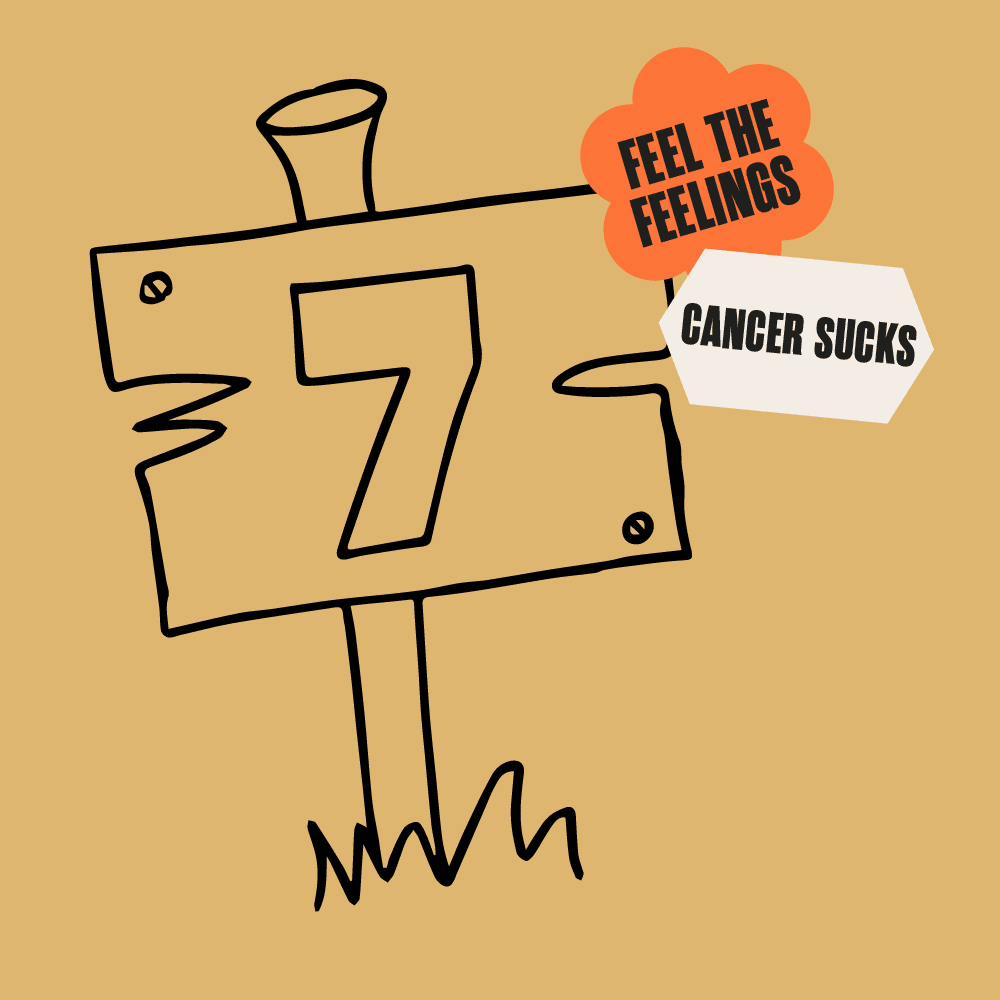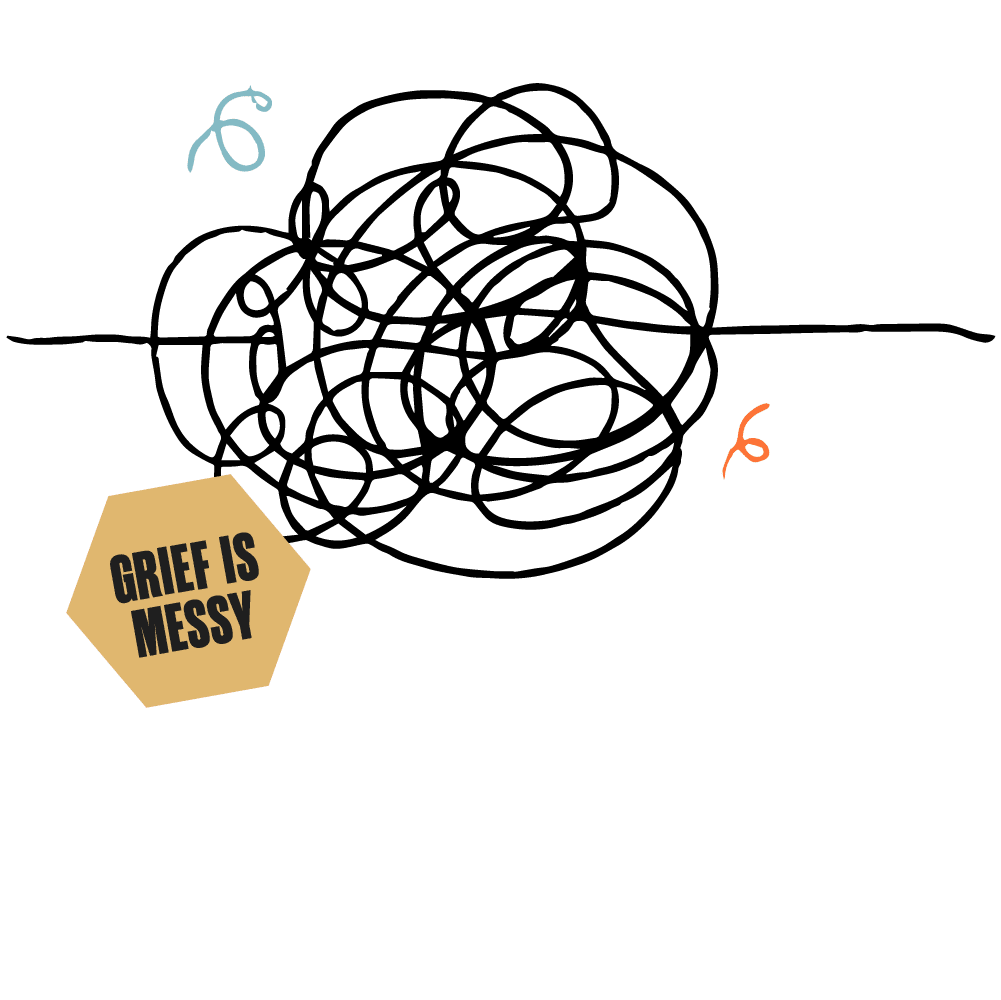A caregiver’s guide to
The 7 Stages of Grief
Cancer is a lot…like a lot, a lot. It’s normal to feel a lot of different emotions when it comes to caring for a loved one with cancer, including loss. Being a caregiver can lead to loss in many forms – loss of independence, relationships, identity, or the future you envisioned – and is intimately connected to grief.



